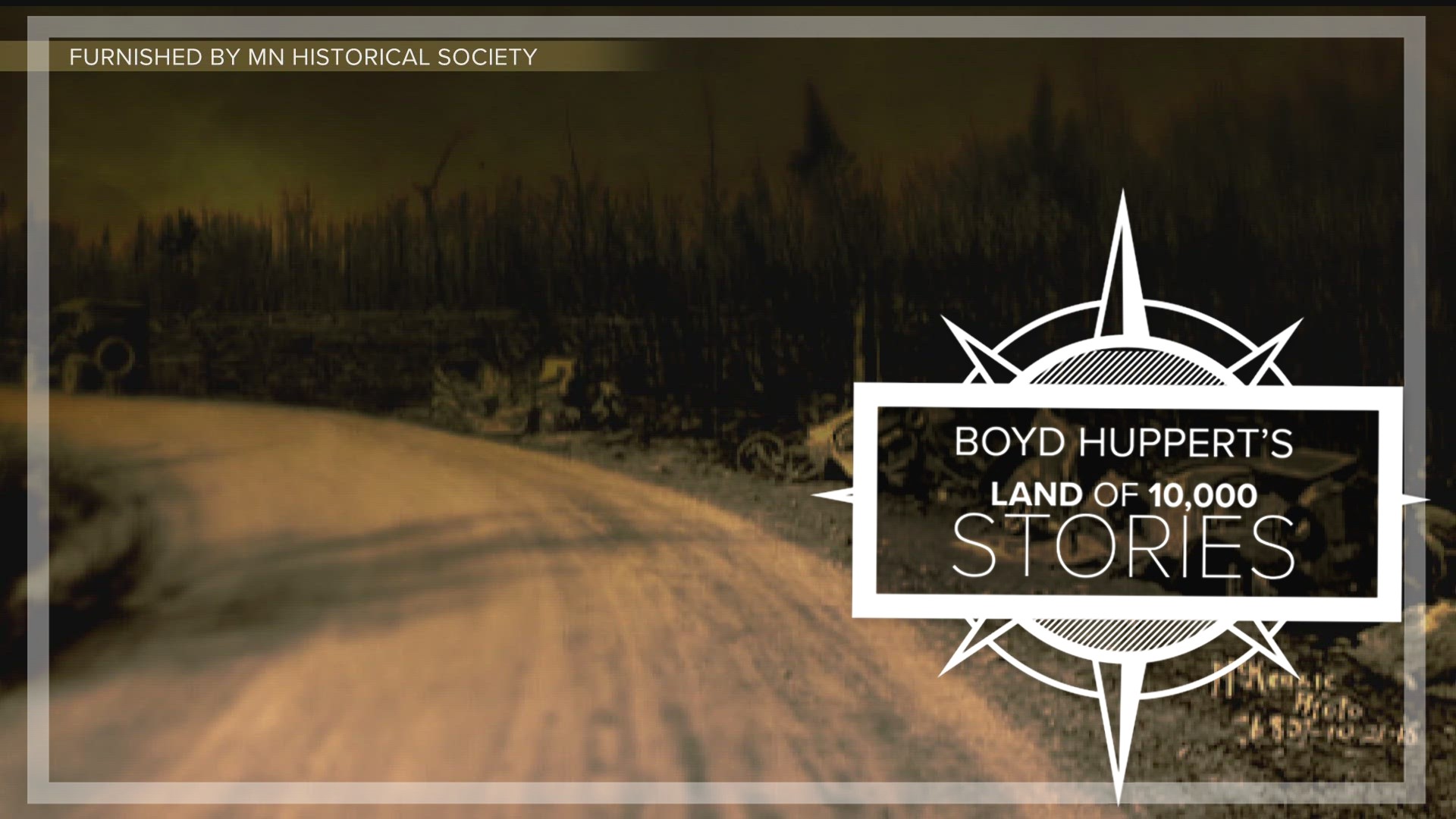MOOSE LAKE, Minn. —
2023 UPDATE:
The story originally aired in 2018 to coincide with the 100th anniversary of the Moose Lake fire.
If you'd like to learn more about the Minnesota's worst natural disaster, the Moose Lake Historical Society operates a fire museum that's worth a visit.
To learn more about the museum, visit its website.
ORIGINAL STORY:
It's not a place one enters easily. Yet, it's not the required stooping or uneven footing that can easily turn back a visitor. It's shaking what happened 100 years ago this week within this dark, musty root cellar.
On Oct. 12, 1918, as a massive wildfire descended on their farm, members of the Soderberg family - adults and children - huddled within the root cellar’s field-stone-lined walls.
Fourteen Soderbergs went in. None came out alive.
“They decided they were going to survive in the root cellar,” local historian Dan Reed said as he stood near the cellar’s opening. “And, of course, they made the wrong choice.”

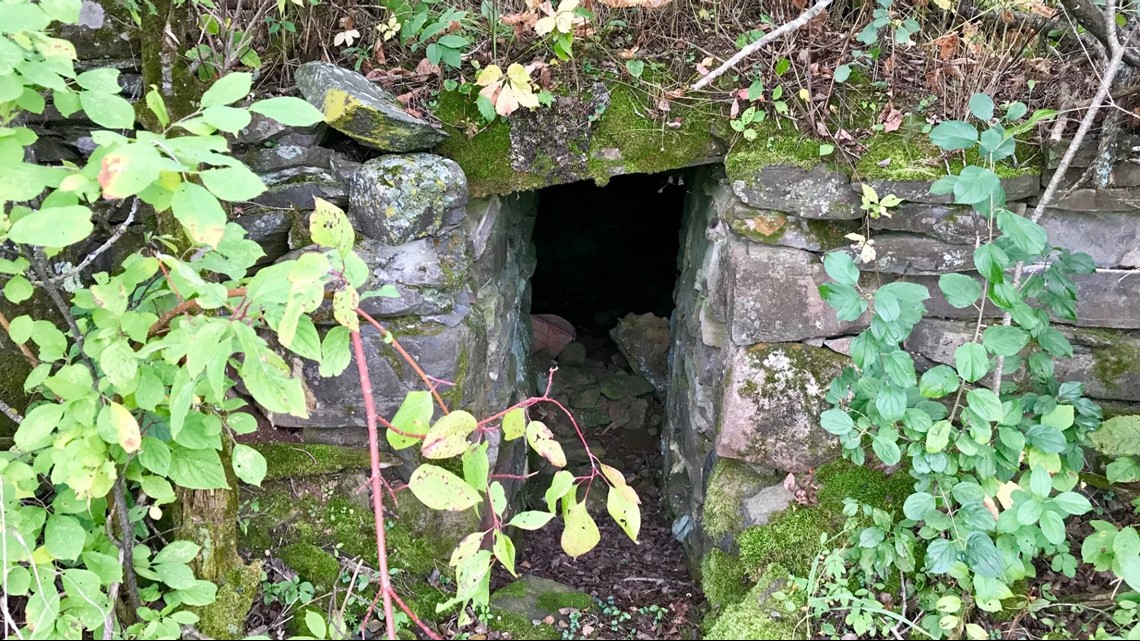
The Soderbergs were among more than 450 people who perished on Oct. 12, 1918, in the deadliest natural disaster in Minnesota history.
Not a single fire, but several – likely started by embers from passing trains – were whipped up by fierce winds and desert-like humidity as northeastern Minnesota endured its worst drought in half a century. It was, in other words, the perfect storm.
In half a day, the fires consumed 1,500 square miles.

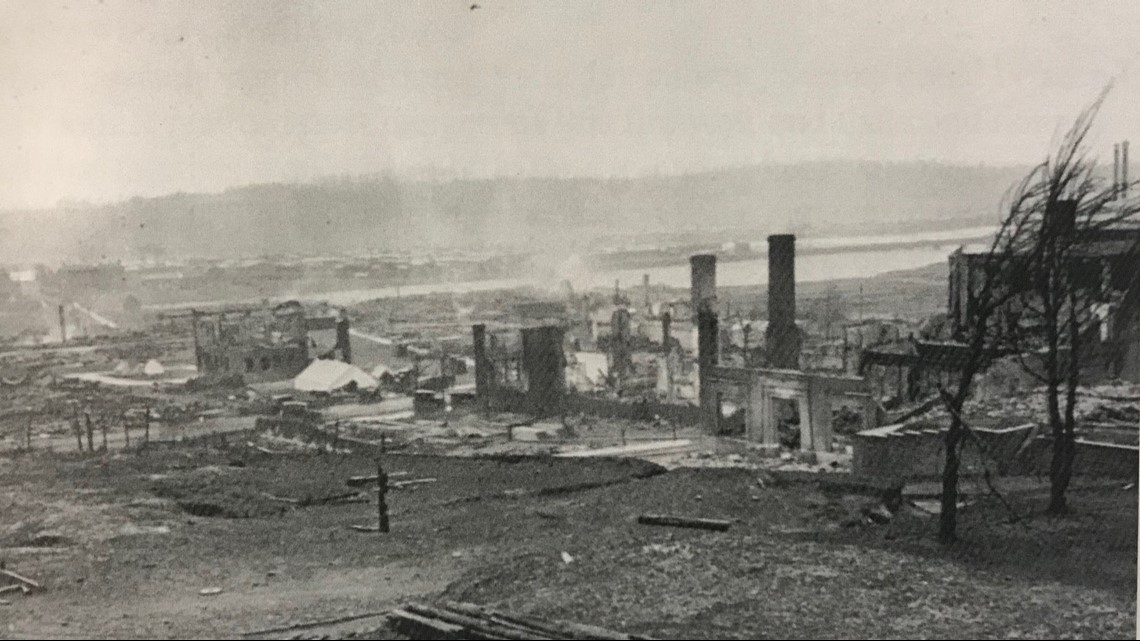
More than 450 people were killed, many of them burned to death in their cars as they tried to outrun the racing wildfire.
In contrast, the Soderbergs’ choice seemed sensible. Together, the family entered the root cellar to wait out the fire, seemingly protected by stone walls and several feet of surrounding soil.
“Three generations,” Lois Johnson says of the Soderbergs. “Plus, a sister-in-law that was visiting."
As a reporter for the local paper, Johnson has written many times over the years about the fire. But her connection to the Soderbergs feels more personal. She lives just a few hundred feet from the old Soderberg farm and passes the root cellar daily.

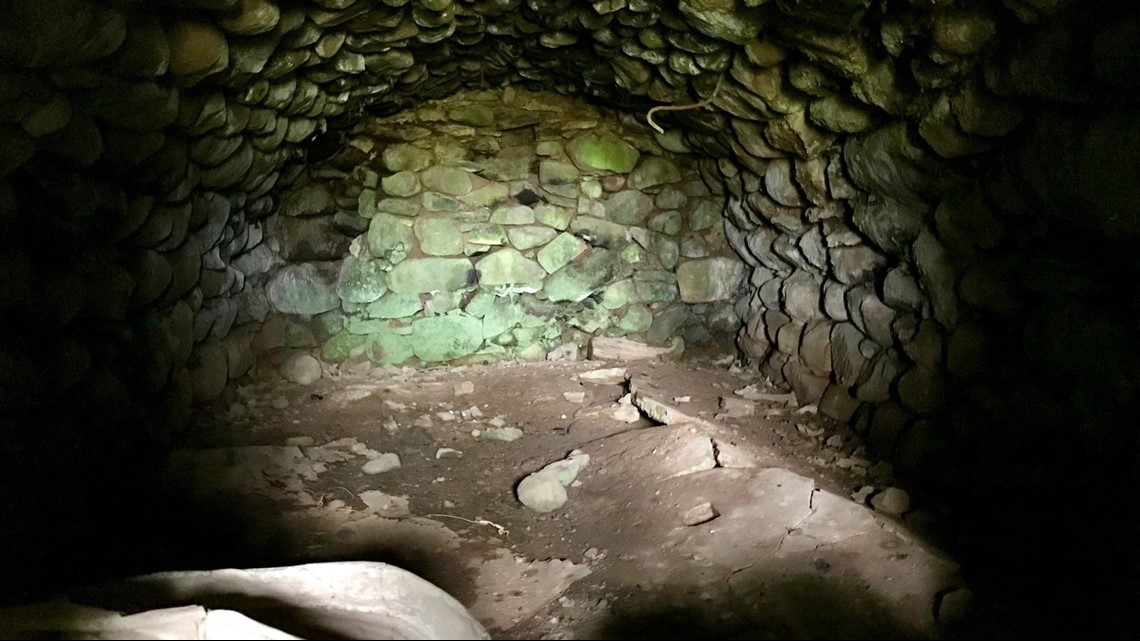
Johnson imagines the fear that must have gripped parents and children as the fire quickly transitioned from black smoke in the distance, to bearing down on the family farm.
“Where do you go and what do you do? They hadn’t thought about that,” Johnson says.
Several other families made the same mistake, by crawling into root cellars and abandoned wells.
As the fire passed, it sucked from the Soderberg’s root cellar the oxygen the family had been breathing.

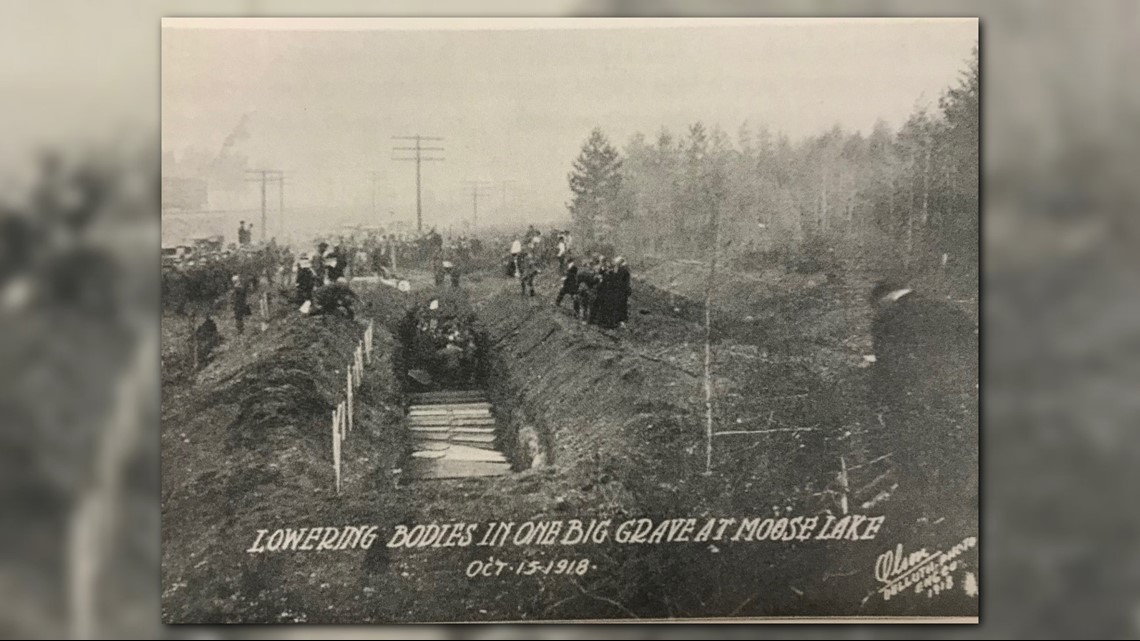
“It makes it real,” she says of the root cellar. “Some people won’t go in there because of what it’s connected with."
It’s been some time, but Johnson has paid a few visits. She’s imagined "what it must have been like for the searchers to come and find these people sitting there sleeping - and they're gone. They're not living anymore.”
Kettle River, Cloquet and Moose Lake were among the towns all but burned to the ground.

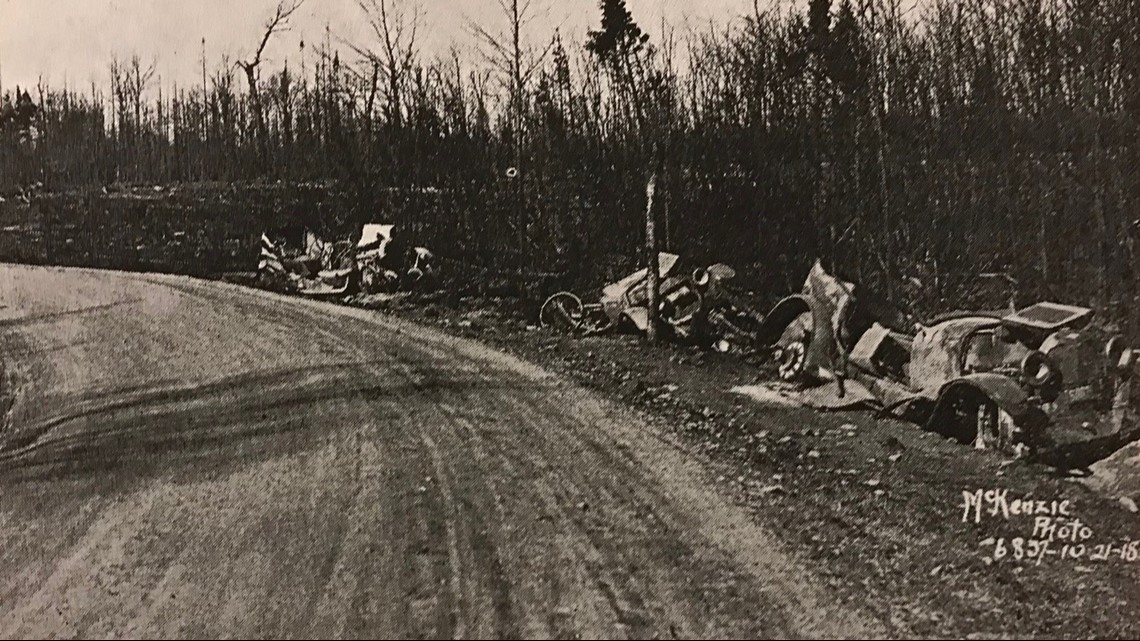
Most of Cloquet’s population packed into box cars, escaping by train ahead of the fire.
Hundreds of Moose Lake townspeople survived by fleeing into Moosehead Lake – some driving their cars into the chilly water.

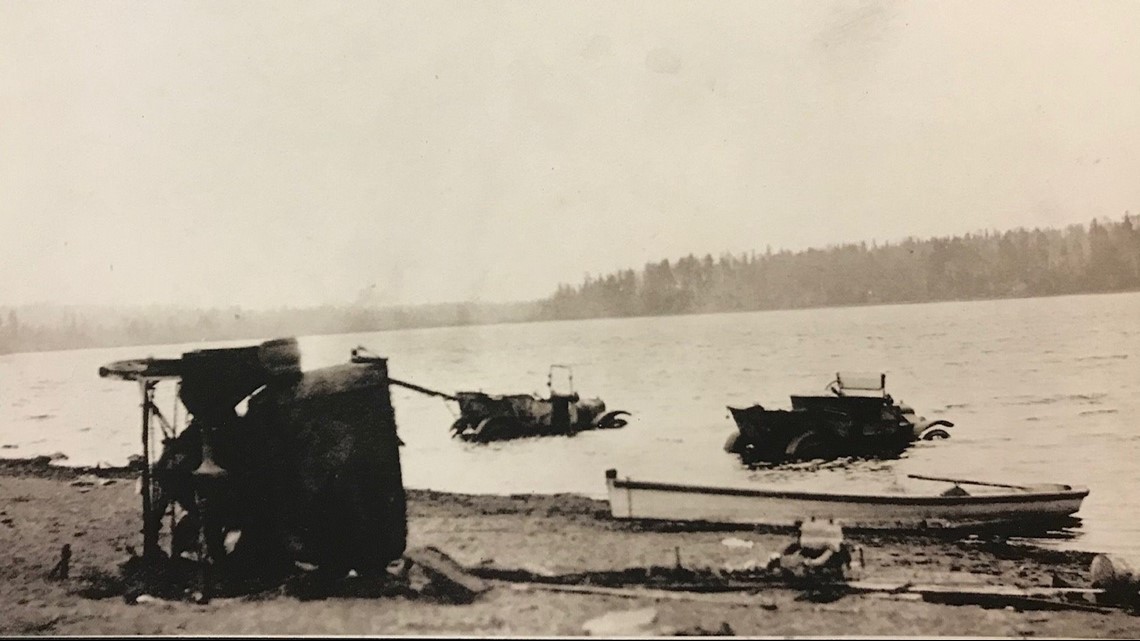
The Soderbergs were laid to rest in a mass grave - dug by hand - days after the mayor of Moose Lake had telegraphed an urgent plea to the governor for 300 caskets.
“The old ones always said, if the fire decided to kill you, it would. If it wanted to let you go, that's what it did. You had no choice over it,” Reed said.
A clump of trees surrounding the root cellar is all that remains of the Soderberg place.
A sacred spot - where the story is remembered.
And wildflowers grow.
Boyd Huppert is always looking for great stories to share in the Land of 10,000 Stories! Send us your suggestions by filling out this form:
WATCH MORE ON KARE 11+
Download the free KARE 11+ app for Roku, Fire TV, Apple TV and other smart TV platforms to watch more from KARE 11 anytime! The KARE 11+ app includes live streams of all of KARE 11's newscasts. You'll also find on-demand replays of newscasts; the latest from KARE 11 Investigates, Breaking the News and the Land of 10,000 Stories; exclusive programs like Verify and HeartThreads; and Minnesota sports talk from our partners at Locked On Minnesota.
- Add KARE 11+ on Roku here or by searching for KARE 11 in the Roku Channel Store.
- Add KARE 11+ on Fire TV here or by searching for KARE 11 in the Amazon App Store.
- Learn more about the KARE 11+ app for Apple TV in the Apple App Store.
Watch more from the Land of 10,000 Stories:
Watch the latest videos from the Land of 10,000 Stories in our YouTube playlist and subscribe to the Land of 10,000 Stories Complete Collection on YouTube.

